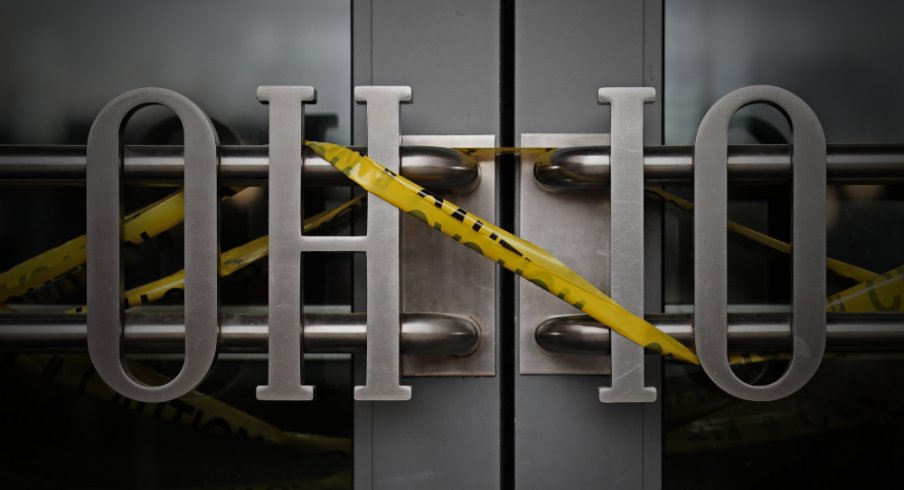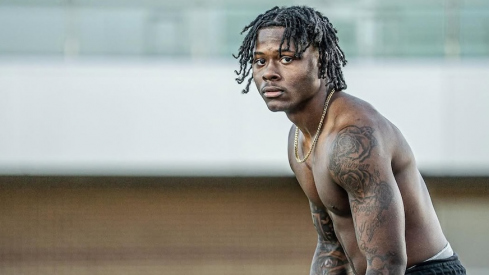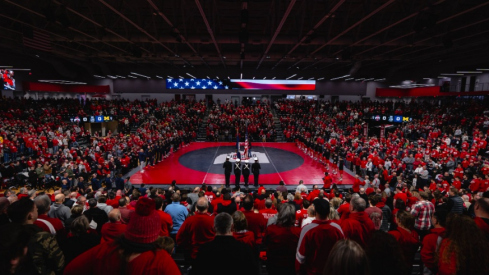I have always been fascinated by movie mistakes.
Call it an editor's fetish. Movie mistakes are basically cinematic typos. During the pandemic I've rewatched a lot of films (no way, you too?) and recently took in Spy Game, an old favorite containing one of the most egregious cinematic typos I can remember.
Spy Game’s non-linear story jumps around between 1975 and 1991, giving producers ample opportunity to trip over historical details. But the showstopper gaffe makes it clear no baseball fans were considered for the editing process.

Brad Pitt's character wears a blue and orange San Diego Padres ball cap for significant stretches of the story that take place in the mid-1980s, back when the Padres had just won the National League pennant and advanced to the World Series. Needless to say, they were a notable sports franchise of that era.
And those Padre teams famously wore then-dated brown and yellow uniforms, matching what late team owner Ray Kroc's McDonalds restaurants looked like at the time. Pitt's cap wouldn't even exist for another decade-plus, and every scene he wore it in - intense action shots painstakingly produced to appear as if he was dodging gunfire in Beirut - is pulled down by the equivalent of tacky CGI.
How could this happen? Most films are produced a modest drive from where the Padres play. When you're making period pieces historical accuracy is a major consideration. Imagine Rhett Butler wearing one of those teal Detroit Pistons jerseys in Gone with the Wind. It would have been super distracting! You'd shout hey guys they weren't even the *Detroit* Pistons in 1941 at the screen, and you'd be right.
That Spy Game hat mistake reminded me of the Big Ten's handling of the coronavirus nightmare. They committed the same glitch, but in reverse. Strap in, we'll get there eventually.
I've always been fascinated by crisis management.
Call it a disaster fetish. Crises expose who our purported leaders really are. During the pandemic I've watched a lot of man-made disasters (no way, you too?) and the Big Ten's handling of the coronavirus is one of the most egregious ones I can remember.
First, let's accept the disease behind this pandemic is real, really contagious, immediately deadly to a small percentage of people, unknowingly harmful to an unknown percentage of others over time - and those who don't show symptoms or beat it like a garden variety communicable disease can still be vectors for its spread. Cool, we're aligned.
Okay, so here's what the Big Ten and every reputable epidemiologist saw coming:
*COLLEGE COVID-19 UPDATE*
— Seth Abramson (@SethAbramson) August 25, 2020
{PART I}
UNC: closed down.
MICHIGAN STATE: closed down.
NOTRE DAME: closed down.
ALABAMA: 566 cases in 1 week.
IOWA STATE: 305 cases in 1 week.
AUBURN: 208 cases in 1 week.
MISSOURI: 159 cases, <1 week.
IOWA: 111 cases, <1 week.
These are not blips. That list will eventually include every school in the country. We have our crisis!
It's the beginning of what fall will look like in America, especially in our moored cruise ships known as college campuses. We knew this was bound to happen, right around the cancelation of March Madness when colleges told their students who left for spring break to not come back.
They're back now. Cross your fingers and hope it goes away didn't end the pandemic. Damn it!
The BIG TEN could have (and still could!) used COVID-19 to become a pioneer. It chose a self-imposed death penalty instead.
So the Big Ten and everyone else had months to figure out what they were going to do with their sports while a disease that's still currently killing over 1,000 Americans a day impaired the country's operating mechanics. They had a list of sports to prepare for and preserve, but the most important one was college football - the product that pays nearly all the bills and covers most of the paychecks. Kind of an important thing to figure out in advance.
Complicating an already vexing crisis is amateurism, and football is the largest cog in that machine. Amateurism is an ancient religion that requires its parishioners to believe in two universal truths:
- football players are just regular students on scholarship.
- the gargantuan top-line revenue their work produces doesn't entitle them to even a small fraction of it, because that would violate the whole spirit of the arrangement.
It's a lot to think about. Here is what lawyer, former operations guy and current B1G commissioner Kevin Warren feared:
The University of Alabama reported 531 new COVID-19 cases on its Tuscaloosa campus this week.
— Bobby Lewis (@revrrlewis) August 25, 2020
Also this week, the entire nation of Scotland reported 519 new cases. pic.twitter.com/nRsHIwTwMk
Bad optics, and in an enclave like Tuscaloosa where football players are just regular students they're going to be exposed to all of those same hazards for disease spread. Wait, we're getting ahead of ourselves.
B1G released an abbreviated schedule and then abruptly canceled its season days later. It was an awkward and shocking cadence, exacerbated by Warren's muddled and clumsy explanation that there were too many unknowns about the disease; unknowns we haven't known for months and will continue to not know for the indefinite future.
That's one strategy for navigating through a crisis - create a brand new one! Warren, boxed in by both his stubborn liability mindset and his mystifying unfamiliarity with his own conference did not see what every sentient being in the midwest saw coming next:
--@TeddyGreenstein says Big Ten Commissioner Kevin Warren told him he did not think the decision to postpone football would be scrutinized as much as it has been. "It was completely mishandled. It was botched. Kevin and I talked the other day and he agreed.
— Paul Finebaum (@finebaum) August 21, 2020
B1G could have (and still could!) used COVID-19 to become a pioneer. It chose a self-imposed death penalty instead. This is a showstopper gaffe that makes it clear no stakeholders were considered for the decision-making process.
It's the most ham-fisted decision the conference has ever made, and I live 25 minutes from Rutgers' campus - I literally exist in a ham-fisted B1G decision's orbit. As for crisis management, this is where leaders make their reputations and Warren wrote his career epitaph in less than a week. That's SEC speed, which ironically is quite familiar to him.
An ops guy like Warren has to be familiar with primitive executive tools like dashboards. He's been in the room innumerable times when the strategy folks explained what the objective was and how they were going to achieve it, so that he could lead his own team to operationalizing that vision.
As commissioner, he's now the strategy guy. His strategy was not having a plan. For months.
as anyone who works in corporate America knows, if you cannot measure something you insist on doing you're just an asshole with an opinion.
As an old hiring manager, I would have tapped a seasoned strategic thinker with several averted crises on her or his resumé for this crucial role instead of a strategy noob who is obviously checking a box on his way back to NFL ownership or commissioner circles - but that disease-riddled cruise ship has sailed. Warren sunk the conference and likely killed his own career aspirations in the process.
He not only failed to sell his idea, he didn't have one. Didn’t make the case for why. Didn't speak to any method for success, failure or measurement, and as anyone who works in corporate America knows - if you cannot measure something you insist on doing, you're just an asshole with an opinion.
Warren has treated his new position like a side hustle, serving as a useful idiot-shield for negligent member institutions who should be taking a lot more heat for their Cross Your Fingers strategy falling apart five months later. He won't be around to deal with the fallout of what happens if any other conference figures out how to manage the crisis he ran away from, but B1G member institutions will be paying that debt longer than this pandemic will last.
Hey, speaking of five months later:
Began. BEGAN. B-E-G-A-N. FIRST CONVERSATION. AUGUST 10. https://t.co/pGcLGGhYIk
— Bill Connelly (@ESPN_BillC) August 11, 2020
Doing everything possible to avoid the optics disaster Warren ran towards in haste is not an easy or elegant solution. The disease they're justifiable afraid of disproportionately impacts minorities and the obese. Insulin resistance is tied to winning the bad coronavirus lottery, and - I adore you forever, linemen - that's a significant number of players. But can you guess which organization on campuses is best positioned to monitor health for their regular students?
Yes, professor - it's the football programs, which are armed and funded to the teeth to do this in the absence of a pandemic. The NBA and the NHL have shown the way through this crisis, and they're dealing with all of the same variables and hazards college football has facing it - except for amateurism.
The conferences that are just going to power through with another crossed-fingers strategy are going to have different and potentially tragic failures ahead of them, the types that scared Warren into hiding. But the Big Ten has always prided itself on being Leaders, and this crisis was (and still is!) an opportunity to be unconventional, bold and - please forgive me - Legendary.
Stop short of admitting amateurism is more mythology than religion, and create an Emergency Mandate for bubbling up, NBA-style, everyone who makes the biggest moneymaker on campus possible:
- Standardize and subsidize a containment strategy across B1G for players, coaches and staff.
- Compensate everyone, including non-salaried workers (what a term) for staying in isolation.
- Prove your concept through transparent and regular reporting on infection rates, compared to campus/county/state infection rates. Bubbles work. Measure them and show them off.
- Play a full slate of outbreak-free conference games during football season, and make that the story.
Sure, the amateurism concession cracks the door open for a full-throated attack on the practice, but that's been happening for awhile now and the conclusion is inevitable. The Big Ten could have been the first to accept this reality, wear it proudly, own the future and declare themselves winners.
But they chose to run away instead, and that cowardice will be the story until tragic campus outbreaks steal the spotlight away. This didn't have to happen, and they can still change course. It's looking increasingly like they're going to continue to hide from what's coming, both corona and the demise of amateurism.
Warren could have worn a hat from the future that doesn't exist yet. He did not. That's the glitch.



